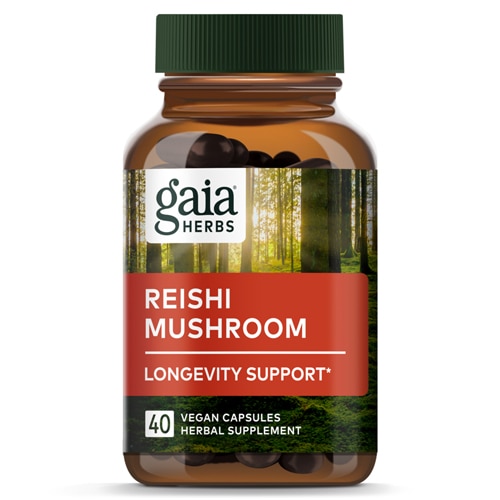The negative effects of urgency culture
But what’s happening now in the workplace is urgency as a way of life, the expectation that everything is equally urgent. This kind of urgency dilutes actual urgency, blurring distinctions and creating unnecessary urgency, the type of that creates stress and actually slows work down. All too often, this kind of false urgency embeds itself as a toxic part of your work culture, imperceptibly becoming the new norm. If you find yourself in a state of chronic and acute reactivity, it is likely that you are operating within an urgency culture that causes more harm than productivity. Urgency culture can lead to burnout, a perpetual state of frazzle and perma-stress. You may find yourself having no true downtime, and as a result, your personal relationships and social life will suffer. Three of the main problems with an always urgent workplace is that it cultivates a constant state of fear and dread, creates false urgency and impacts creativity and innovation. When will the next urgent thing come down the pike? When you work in such conditions, there’s a sense of never being able to completely settle, always waiting for the other shoe to drop. If you are always rushing, your ability to do focused, high-quality work goes into remission as you struggle to get the job done willy-nilly. Get clear on your own boundaries around work-life balance. You need to decide for yourself where to draw the line around when you are available and when you are not. Here are some key areas for reframing urgency and making a pivotal shift.Is important and urgent the same thing?
The first thing it helps to understand is why a particular project or outcome is important. If it’s truly important, generating a sense of rush can be counterproductive. Projects of great importance require a thoroughness, along with a devotion to intricacy and nuance. Urgency, on the other hands, tends to generate sloppiness. Urgency negates our capacity to be present– for the outcome or the people. Embodying importance is a very different way of being than embodying urgency. It requires clarity for yourself and others about what the intention is and why that matters.To go fast, slow down
The well word adage of going slow to go fast is too often given lip service only. The faster you go, the more mistakes get made. The idea of well begun is half done posits a careful, meditated start to any project, rather than an ad hoc modus operandi. Abe Lincoln’s famous quote, “Give me six hours to chop down a tree and I will spend the first four sharpening the axe,” is a perfect example of the efficiency of slow going. Gathering all the information, thinking through processes and outcomes, even if it slows you down in the beginning, ensures a smoother path to completion.Energy and time exist on different continuums
Think of what you can do when you are fresh versus what you can do when you are stressed. When people use urgency as a motivator, often what they’re trying to ask those around them for is a similarly demonstrated commitment of energy to the task at hand. They unconsciously equate time with commitment. But when you are in the zone, or flow state, you can get so much done. But you can’t get into a flow when you are stressed. Time pressure needs to recede so your true potential to meet the moment—the task at hand—can emerge.Debunking the scarcity mindset
One of the root causes of a sense of urgency is an orientation to scarcity (time is scarce, money is scarce, food, love, etc). In other words, even if unconscious, you believe there will never be enough. Scarcity usually stems from experiences in childhood and often from experiencing poverty, whether physical poverty or emotional poverty. Whatever the case, you were left with the imprint that there wasn’t enough of something. When the mindset gets engrained in your unconscious beliefs, it informs the way you work. Scarcity ends up projected onto things/behaviors. A sense of urgency is often one of the coping mechanisms you learn to try to generate more of whatever was lacking. Urgency constrains: You’re stressed, worried about time, about not enoughness and rushing through everything. It’s not a place of openness; it’s an orientation that involves fear. And fear is ultimately a very sticky place to try to create out of and work from. Yet leading from a place of “there is always enough” is much harder. It’s a challenging shift, especially in financially pressured institutions. It doesn’t mean being irresponsible about deadlines or getting work done. It simply means to trust in what is true: Right now there is enough time, money, love, knowledge, etc. It may not be as much as you want, but there is enough (and if there truly isn’t, you need to be doing something about that). Generosity—and slowing down—breeds openness, connection, collaboration.Practical tips for fending off urgency culture
- Detail any after-hour expectations in writing so your colleagues and employers know exactly where you stand and what can be expected from you.
- Be sparing on sending emails—and instant messages, texts and so on—after work hours.
- Try to curb certain words and phrases including “urgent,” “immediately,” “I need this before you go home,” etc.
- Don’t make being available on demand a badge of honor. Be an advocate for a healthy work-life balance.
- Communicate critical deadlines calmly. Don’t allow your own stress to color your communication.
- Plan your workload strategically to reduce the likelihood of urgent and last-minute requests.
“Sometimes I think there are only two instructions we need to follow to develop and deepen our spiritual life: slow down and let go.”
? Oriah Mountain Dreamer
[/vc_column_text][/vc_column][/vc_row][vc_row][vc_column][vc_text_separator title="Featured Products" border_width="2"][vc_row_inner equal_height="yes" content_placement="middle" gap="35"][vc_column_inner width="1/3"][vc_single_image image="156669" img_size="full" alignment="center" onclick="custom_link" img_link_target="_blank" css=".vc_custom_1639931901984{padding-right: 7% !important;padding-left: 7% !important;}" link="https://www.vitacost.com/codeage-meditate-vitamins-stress-support-and-anxiety-relief-supplement"][/vc_column_inner][vc_column_inner width="1/3"][vc_single_image image="156670" img_size="full" alignment="center" onclick="custom_link" img_link_target="_blank" css=".vc_custom_1639931952630{padding-right: 7% !important;padding-left: 7% !important;}" link="https://www.vitacost.com/bluebonnet-nutrition-collagen-refreshers-zen-hydrolyzed-powder"][/vc_column_inner][vc_column_inner width="1/3"][vc_single_image image="156671" img_size="full" alignment="center" onclick="custom_link" img_link_target="_blank" css=".vc_custom_1639932010833{padding-right: 7% !important;padding-left: 7% !important;}" link="https://www.vitacost.com/natures-way-stress-end"][/vc_column_inner][/vc_row_inner][/vc_column][/vc_row]



